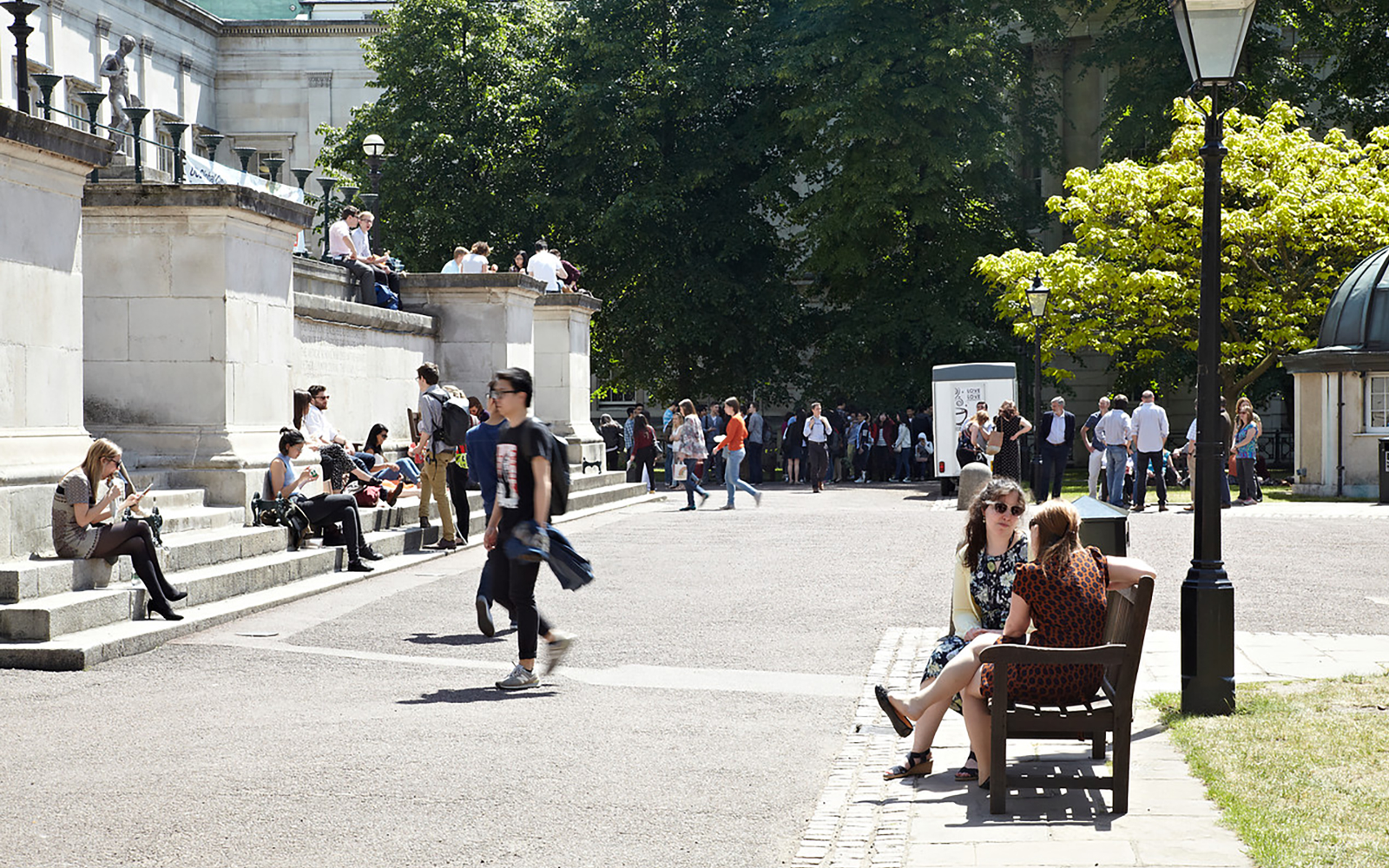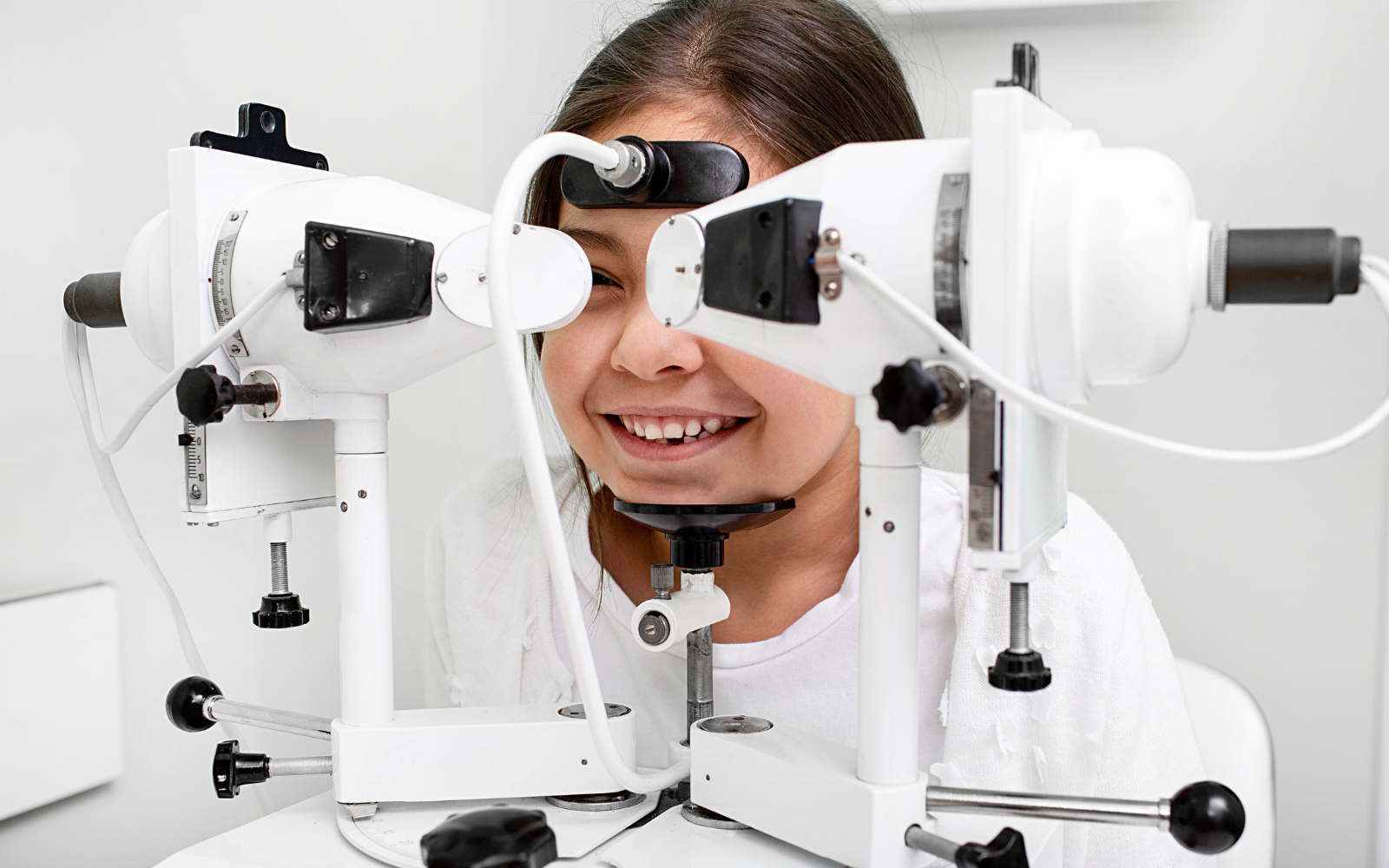Study Orthoptics (Pre-registration) MSc at UCL
Why study the Orthoptics MSc (pre-registration)?
The UCL Orthoptics MSc (pre-registration) is the UK's first dedicated accredited graduate entry programme that provides an accelerated route becoming an accredited orthoptist in the UK. It provides you with the theoretical knowledge and clinical training that underpins professional registration with the Health and Care Professions Council (HCPC). Successful completion of this programme will allow you to qualify and practice as an accredited orthoptist. You will be able to work both in private and public healthcare settings (such as in the NHS).
If you are passionate about pursuing a career in the healthcare sector and want to train to become an allied health professional, the Orthoptics MSc programme may be a great option for you.
Funding support
In 2023/24, students are eligible to apply for the NHS Learning Support Fund (NHS LSF) grant, which does not need to be repaid. Details of the funding supporting include:
- £5,000 per year
- £1,000 per year specialist subject payment for orthoptics
- Parental support of £2,000
- Reimbursement for excess travel and accommodation costs associated with clinical placements
- Exceptional Support Fund for students experiencing financial hardship
Visit the NHS Learning Support Fund to learn more and apply.
Students can also apply for a £9250 per year tuition fee loan and a means-tested maintenance loan of up to £13,022 (in 2023) from the Student Loans Company.
Register your interest to study at UCL
Interested in studying the Orthoptics MSc (pre-registration) at UCL? Complete this form to hear about our future information events and news about the programme including when applications open.
Why study at UCL?
- You will be taught by Consultant Ophthalmologists and Orthoptists based at Moorfields Eye Hospital, ranked as the world's best eye hospital (SCImago Institutions Rankings 2023).
- Our longstanding partnership with Moorfields Eye Hospital represents the largest co-located site for eye research, education and care in the world.
- The UCL Institute of Ophthalmology is ranked the best place in the world to study ophthalmology (CWUR Rankings by Subject 2017).
- UCL is ranked 8th in the world (QS 2023).
- In biomedical and health sciences, UCL is 1st in Europe for papers in the top 5% of their field by citation rate (2015-2018, CWTS Leiden Ranking 2020).
- UCL hosts more UKRI Future Leader Fellowships than any other UK university, with three academics at the UCL Institute of Ophthalmology receiving the prestigious fellowships over the last three years.
- As a student you will have access to innovative facilities, connection to a growing network of peers, and support from highly experienced and professional tutors.
Programme overview
Benefiting from blended learning opportunities, you will learn about paediatric ophthalmology, strabismus (ocular misalignment), ocular motility disorders, and other eye and vision health issues and diseases. Wider learning encompasses core research methods and statistics, and extended clinical knowledge of complex ophthalmic and neuro-ophthalmic conditions.
Central to your studies is your clinical placements. The programme provides you with 1,000 hours of supervised placement activity so that you will graduate with first-hand orthoptic clinical experience and confidence to work in a clinical setting.
Learn more about this programme below.
- Mode of learning
This programme is delivered through a blended learning approach with a combination of face-to-face and online lectures, collaborative and co-operative learning activities, clinical skills labs, tutorials, virtual classrooms, self-directed learning, and clinical placements. As an accredited programme, you are required to attend 100% of teaching activities, across an extended academic year.
Taught modules are generally five weeks in length and comprise 30-35 hours of activity each week. Block clinical placements occur across England in 4-week blocks, with three blocks per year.
You will have access to the Moodle learning platform, including discussion forums where you can share knowledge and experiences with your peers. You will also have access to the library resources and support at UCL.
- Your employability and career
This programme has been designed to equip you with the requisite knowledge and skills to register with the Health and Care Professions Council (HCPC) as an orthoptist. Graduates typically undertake a career in orthoptics and you will learn about extended clinical roles. There are also opportunities to pursue further training to undertake a clinical academic career.
Many students will go on to work in the NHS. In the NHS, Orthoptists work from Band 5 through to Band 8d.
Want to learn more about a career as an orthoptist? You can hear more from our teaching team and students on this short course developed in partnership with King's College London and FutureLearn: Orthoptics: How to be a Brilliant Allied Health Professional. Limited access to the course is free.
- Programme structure
In Year One, you will learn about the visual system, optics, core and complex orthoptics, and paediatric ophthalmology. Clinical teaching at UCL is consolidated during clinical placements. The first term is aimed at providing the necessary teaching in anatomy, physiology, and professional standards, and supporting all students to have the knowledge to succeed on this programme, irrespective of your background.
In Year Two, modules will cover research methods and statistics, broader ophthalmology, sale and supply of medicinal products (specific to orthoptics) and clinical placements. You will enhance your research skills through a library-based research project on a topic related to orthoptic/ophthalmic practice.
Throughout your time at UCL, you will be paired with a clinical or clinical academic mentor so you can discuss what you are learning and experiencing in your lectures and clinical placements with an expert working in the field.- Modules
All modules are compulsory. These include:
- OPHT0069 – Orthoptics I
- OPHT0070 – Ophthalmology I
- OPHT0071 – Orthoptics II
- OPHT0072 – Clinical placement I
- OPHT0073 – Ophthalmology II
- OPHT0074 – Clinical placement II
- OPHT0075 – Orthoptics III
- OPHT0076 – Research methods and statistics
- OPHT0077 – Sale, supply and administration of medicinal products
- OPHT0078 – Ophthalmology III
- OPHT0079 – Clinical placement III
- OPHT0080 – Dissertation
Year One
OPHT0069 – Orthoptics I – five weeks
This module covers core topics to develop a comprehensive understanding of visual perception and optics. It will also introduce and develop the students’ knowledge of the principles underlying theoretical and clinical Orthoptics. The module will cover:- Anatomy and physiology of the eye, visual pathway, brain and brainstem
- Principles of visual function and basic qualitative and quantitative testing methods
- Fundamentals, and applications, of visual optics
- Aetiology, effect and correction of refractive error
- Principles of binocular single vision and normal visual development
- Basic knowledge, assessment and documentation of case history and full range of tests for the assessment of binocular single vision
- Classifications, assessment, investigation and management of heterophoria
- Introduction to accommodation, convergence and associated anomalies
- Personal and professional skills
OPHT0070 – Ophthlamology I – five weeks
This module will cover basic principles and foundations of various types of ophthalmic imaging as well as further exploration of anatomy and physiology with particular focus on intraocular anatomy. Students will also be introduced to professional standards, multi-disciplinary working and safety in practice. This module will provide a foundation in Ophthalmic diagnostics and as such will be particularly useful in preparing for future extended role practice and ophthalmic common clinical competency framework (OCCCF) qualification.The module will cover anatomy and physiology of relevant external and intraocular structures including:
- Development of the eye
- External/adnexal anatomy of the eye
- Anterior segment
- Posterior Segment
- Fundamentals of OCT
- Fundamentals of VF
- Electrodiagnostics
Students will have the opportunity to practice clinical skills ‘in-house’ for 1 session each week. They will also have the opportunity to attend day-placements within 1 hour of London for 10 weeks during the first term.
OPHT0071 – Orthoptics II – five weeks
Using the assessment skills from Orthoptics I, this module will develop the students’ knowledge to use these skills to be able to fully investigate, diagnosis and manage all types of concomitant strabismus.
This module will introduce diagnosis and develop the management of concomitant and neurogenic cases. It will also cover:
- Diagnosis and management of all types of amblyopia
- Develop skills in enhanced Orthoptic testing and the variety of recording methods – ocular motility, synoptophore, colour vision, stereovision
- A and V patterns
- Surgical and nonsurgical management of concomitant cases
- Opportunity to practice assessments in-house
OPHT0072 – Clinical placement I – eight weeks
Clinical placements form an essential and integral part of the degree programme by allowing students to develop and apply theoretical knowledge learnt in lectures and from their own further reading. These placements encourage students to apply their academic knowledge to clinical Orthoptics and general ophthalmology. Students will rotate to different accredited clinical placements sites in 4-week blocks over the 2-year programme to ensure a good balance and breadth of clinical experience is achieved. Within the clinical placement an opportunity to visit other sub-specialty areas directly relevant to the course e.g., theatre, stroke wards, screening, imaging departments.
This module will enable students to put into practice theoretical knowledge gained from the Orthoptics I, II and Ophthalmology I modules.
OPHT0073 – Ophthalmology II – five weeks
This module will cover paediatrics and paediatric ophthalmology – specialties that have close professional links to Orthoptists.
Topics will include:
- Human development
- Normative developmental milestones
- Development of the eye
- Common paediatric ophthalmic conditions
- Neuro-ophthalmology
Students will also learn about professional standards and working within a multidisciplinary team (incl. continuing professional standards training, focusing on ethics, law, behaviour, self-management, communication, continued professional development, methods of review, safety, conduct and leadership) and health and social care services. Students will also study introductory psychology and sociology.
OPHT0074 – Clinical placement II – eight weeks
This module will enable students to consolidate clinical skills from theoretical knowledge gained from the entire first year of the programme. N.B. The final five weeks and assessment of Clinical placement II occurs in Year Two.
OPHT0075 – Orthoptics III – five weeks
This module will introduce diagnosis and management of incomitant mechanical and myogenic cases. The module will cover:
- Enhanced Orthoptic assessment of incomitant aetiologies – Hess/Lees, Uniocular Fields Of Fixation, field of Binocular Single Vision which will allow any progression, recovery, pre and post-operative patient outcomes to be monitored appropriately
- Knowledge, aetiology, documentation and management of nystagmus both congenital and acquired
- Surgical and nonsurgical management of incomitant cases
- Neuro-orthoptics including stroke, supra/infranuclear eye movement disorders
- Complex strabismus and ocular motility defects
As with other modules, there will be opportunities to practice assessments in-house.
Year Two
OPHT0076 – Research methods and statistics – two weeks
This module provides a comprehensive engagement with the evidence-based approaches (quantitative and qualitative data and literature review), which underpin research and clinical practice developments. The emphasis is on research principles and analysis methods. Students will learn about the various ways research can be conducted and the selection of various methods to answer specific types of questions. Students will also learn how to integrate and adapt research methodology in order to plan research projects and how to analyse different data sets using statistical software.
Students will engage in tasks such as conducting literature searches, critical reading of papers, statistical analysis, identifying and designing projects, evaluative report and presentation writing and writing grant proposals.
OPHT0077 – Sale, supply and administration of medicinal products – two weeksThis module will enable students to fulfil the requirements for annotation on the Health and Care Professions Council register as qualified to use exemptions within Human Medicines Regulations 2012 to sell, supply or administer any eye drops or ointments on the approved list, for any condition within their scope of practice and competence.
The supply and administration of medicines under exemptions by orthoptists is intended to provide patients with more timely and efficient care by supporting service redesign, making the best use of the skill set of orthoptists and offering patient choice.
OPHT0078 – Ophthalmology III – five weeksThis module will cover the theory of common disease processes within three of the four priority high throughput sub-specialties within ophthalmology: Cataract, Glaucoma and Age-related Macular Degeneration (AMD). The module will also consist of baseline clinical skills to allow the student to carry out basic assessment of patients using a slit lamp or direct ophthalmoscope. This module will provide an overview of several key areas within ophthalmology and some of the key disease processes. As such, this module will be particularly useful for preparing for future extended role practice and ophthalmic common clinical competency framework (OCCCF) qualification.
The module will cover:
- External/adnexal
- Cataracts
- Glaucoma
- Medical retina
- Genetics
- Clinical skills
OPHT0079 – Clinical placement III – eight weeks
This final clinical placement module will allow students to consolidate all theoretical underpinnings for practice as an autonomous Orthoptist.
OPHT0080 – Dissertation
This module will provide students with the opportunity to shape and engage in a library-based research project that allows for an in depth and independent subspecialty ophthalmic topic to be explored, analysed in the context of current developments in the area and communicated in a substantial written format. This may, according to area of study, allow for an enhanced synthesis of theory and practice to be identified, affording students with the means of focusing their development going forward in the direction of clinical practice and/or research, and allowing them to identify personal areas of specialisation to inform their subsequent professional choices in respect to further study and employment. Independent study will be supported by research in practice sessions to support the acquisition of research and analysis skills.
- FAQs
Q. How many hours of teaching are there a week?
A. For non-placement modules, teaching varies between 15-20 hours a week. You will also have tutorials each week with sessional clinical placements and clinical skills labs where appropriate. In total, you should expect to spend 30-35 hours a week studying on this programme.During clinical placement modules, you will spend all week on placement (Monday-Friday, 9am-5pm), but can return home at weekends if your placement is not within commuting distance. It is also important to note that each academic year is longer than standard. Year One is 42 weeks including all taught modules, placements, and exam periods. Year Two ends with a dissertation submission at the end of August (46 weeks).
Q. Where will studies take place?
A. Face-to-face lectures will occur at the co-located UCL Institute of Ophthalmology (IOO) / Moorfields Eye Hospital. Sessional clinical placements (Year One, Term One only from October through to December) will occur across sites within 1-hour of London.You will be based at the IOO and have access to the world’s largest ophthalmic library, as well as bookable clinical suites in the Moorfields Education Hub. As UCL students, you will also have access to incredible facilities across London. Block clinical placements (four weeks at a time in one department) take place across England.
Q. How are modules assessed?
A. You will be assessed at the end of each of module through a variety of methods such as written examinations (comprising MCQ’s and short-form questions), coursework, case reports, problem-based learning scenarios, clinical examinations, and poster presentations.
Q. What are my career prospects?
A. This course is designed to enable graduates to register to practice as an orthoptist. Orthoptists generally work in a multi-disciplinary team in a hospital setting, with excellent graduate employability and career progression.
Q. How do I apply?
A. Please apply directly through UCL here. The application page has guidance for your personal statement. Shortlisted applicants will be interviewed prior to being offered a place.
Q. What financial support is available?A. The NHS Learning Support Fund (LSF) currently offers a grant of £5000/year with additional support available for childcare costs, and the ability to claim excess travel and accommodation costs whilst attending clinical placements. As these are grants, they do not need to be repaid.
Students are also eligible (even as a second degree) to apply to the Students Loans Company for further support as this a pre-registration programme to support you into a career working as an Allied Health Professional. You can also apply for annual tuition fee loans (£9250 for 2022 (please note, this is less than the programme tuition fees)), and either means or non-means tested maintenance loans. You can find out more on the UK Government's Student Finance website here.
Q. When can I apply for the student loan?
A. Applications for this programme take approximately six weeks to process so you may wish to apply for the loan while you are still waiting for a confirmed place on the course. You will need to be registered on the course before you receive any payments. You may still change your mind about studying later. You can find out more about the student loan application process here.
- Entry requirements
Applicants with a minimum 2:2 Bachelor’s degree in a relevant discipline from a UK university or an overseas qualification of an equivalent standard. Relevant subject areas include biological sciences, chemistry, nursing, and psychology.
Students from other backgrounds are also welcome to apply and should highlight in their application the strengths their previous learning and/or experience brings to being an orthoptist.
Courses undertaken at institutions other than UCL will be assessed for accreditation of prior learning (APL) on a case-by-case basis and an interview and/or candidates may be required to write a piece of work to support the APL application.
- English language requirements
The English language level for this programme is: Level 2
UCL Pre-Master's and Pre-sessional English courses are for international students who are aiming to study for a postgraduate degree at UCL. The courses will develop your academic English and academic skills required to succeed at postgraduate level. International Preparation Courses
Further information can be found on our English language requirements page.
- Recognition of Prior Learning (RPL)
This will be considered on an individual basis and candidates would be required to demonstrate evidence of their prior knowledge and ability to study master’s level. This could be through an interview and/or written piece of work.
- Our research expertise
Hear from UCL Institute of Ophthalmology Director, Professor Andrew Dick and Deputy Institute Director/Deputy Director for Research Professor Alison Hardcastle on the ideas behind the research themes at the Institute.
YouTube Widget Placeholderhttps://youtu.be/FJvRZUGn5Qg Learn more about the Institute's research themes and community here.
Guidance on completing your application
As part of the written application, prospective students will be asked to complete a personal statement. Together with essential academic requirements, the personal statement is your opportunity to illustrate whether your reasons for applying to this programme match what the programme will deliver. The statement is assessed carefully by the UCL Orthoptics MSc Selection Panel to shortlist candidates for group interviews. Applicants who fail to address the key points listed here will not be shortlisted. Your statement is limited to 700 words.
Your personal statement should tell us:
- Why you want to study orthoptics
- What makes you a strong candidate, drawing on skills, previous education, and experiences
- Where you see yourself as an Orthoptics MSc graduate
Due to a high volume of applications, we recommend that you apply for the programme as early as possible. Shortlisted candidates will be invited to a group interview with dates to be confirmed shortly.
What our students say

- Kogilan Paramananthan, Orthoptics MSc (pre-registration).
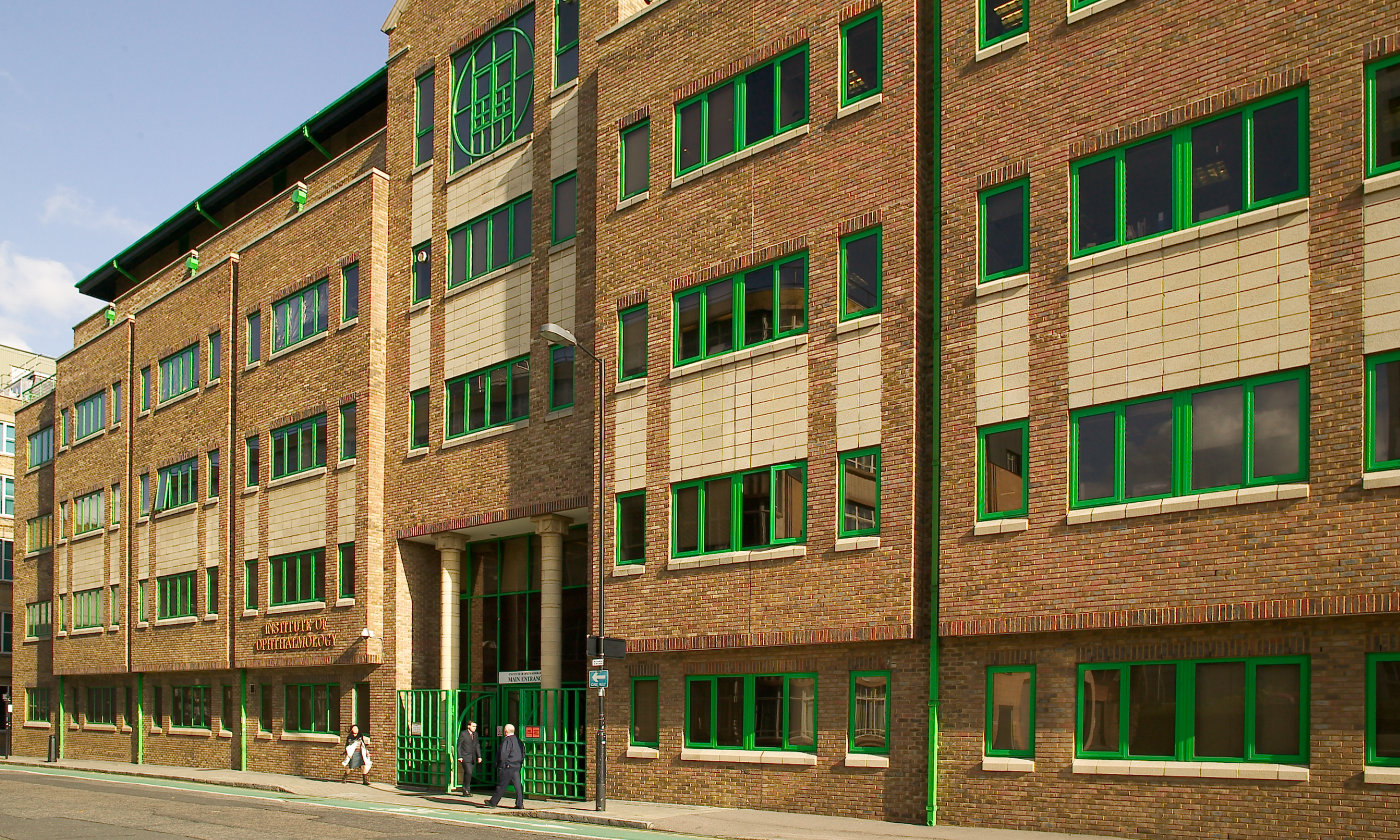
Study at the UCL Institute of Ophthalmology, ranked as the best place to study ophthalmology in the world (CUWR 2017).
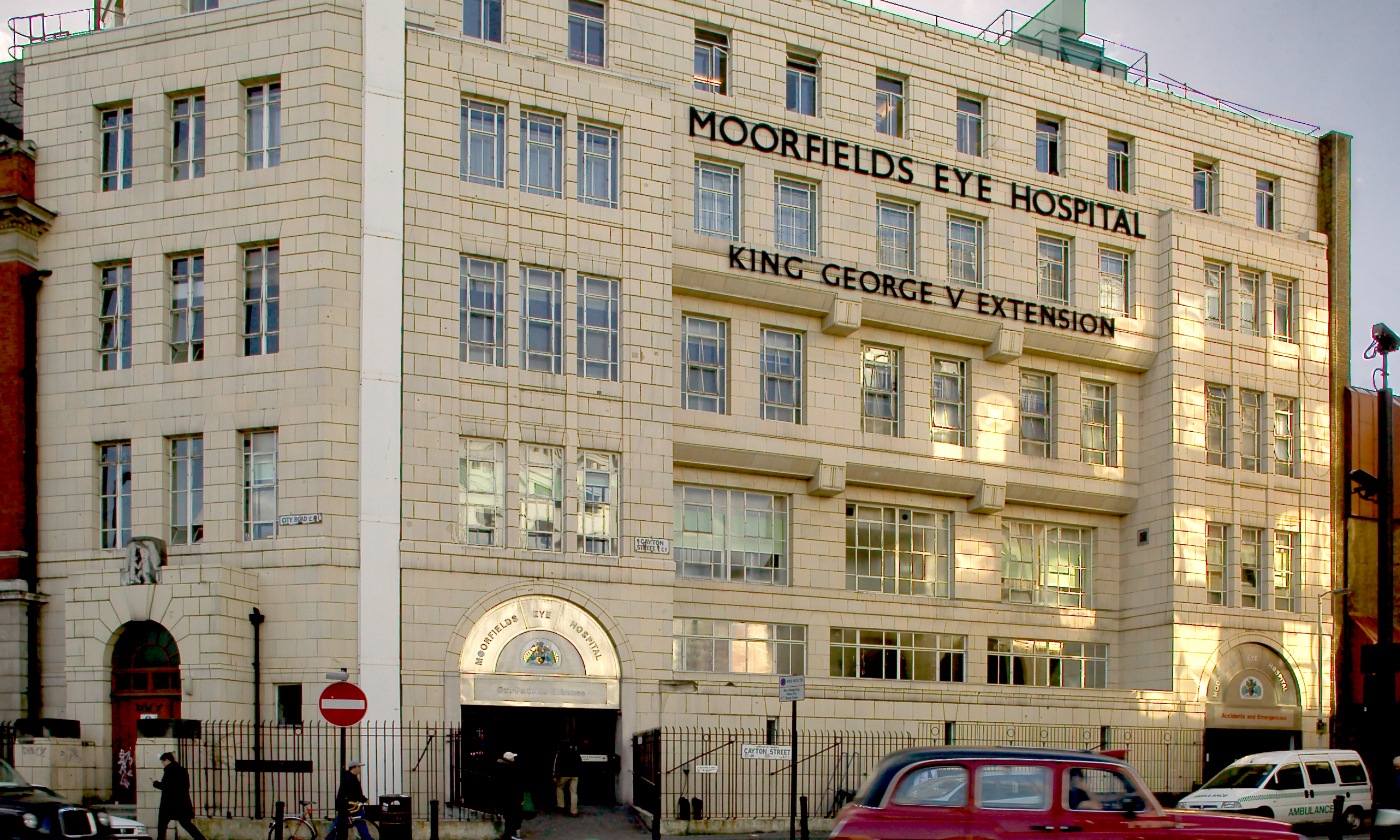
You will be taught by Consultant Ophthalmologists from the world-leading Moorfields Eye Hospital.
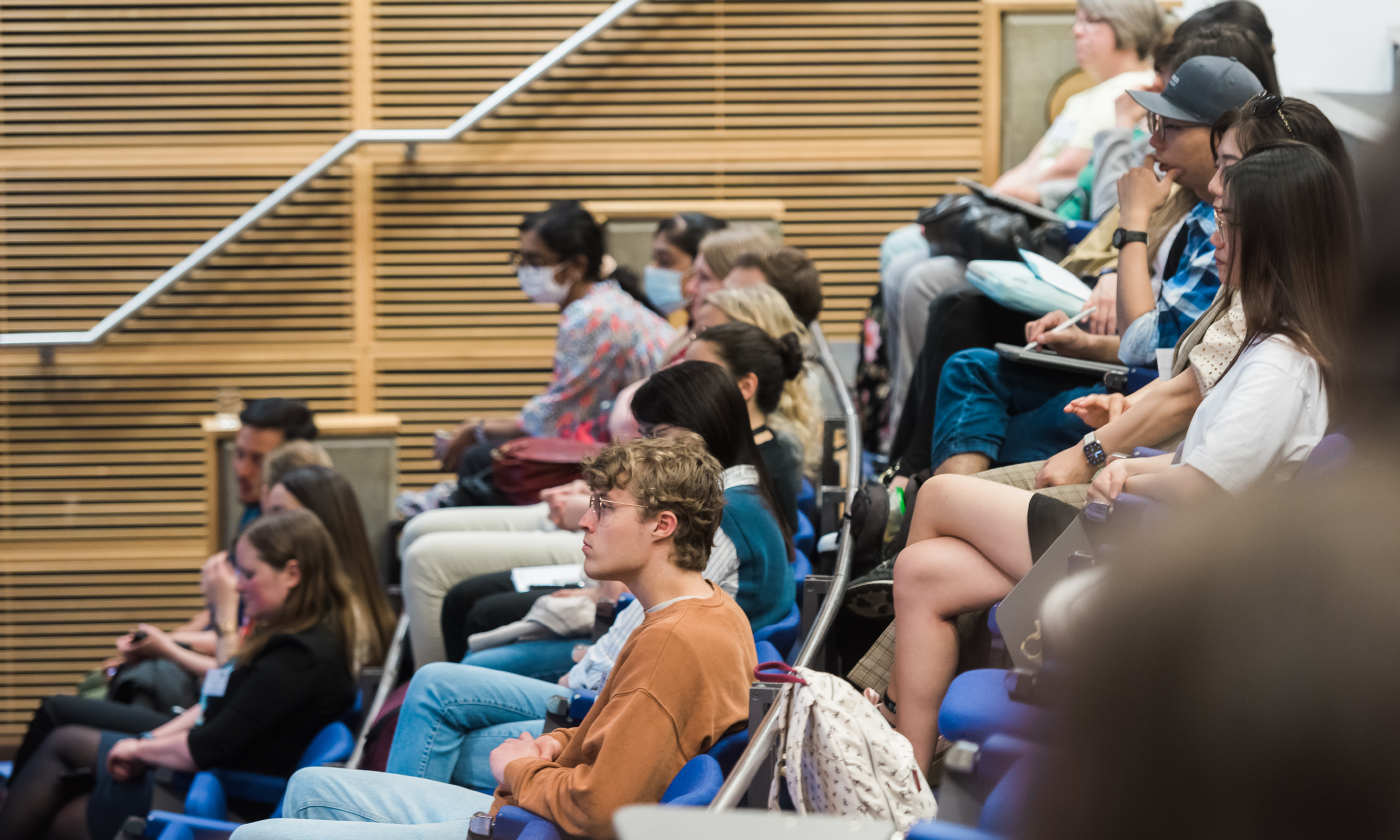
Students benefit from self-study and in-person teaching opportunities.
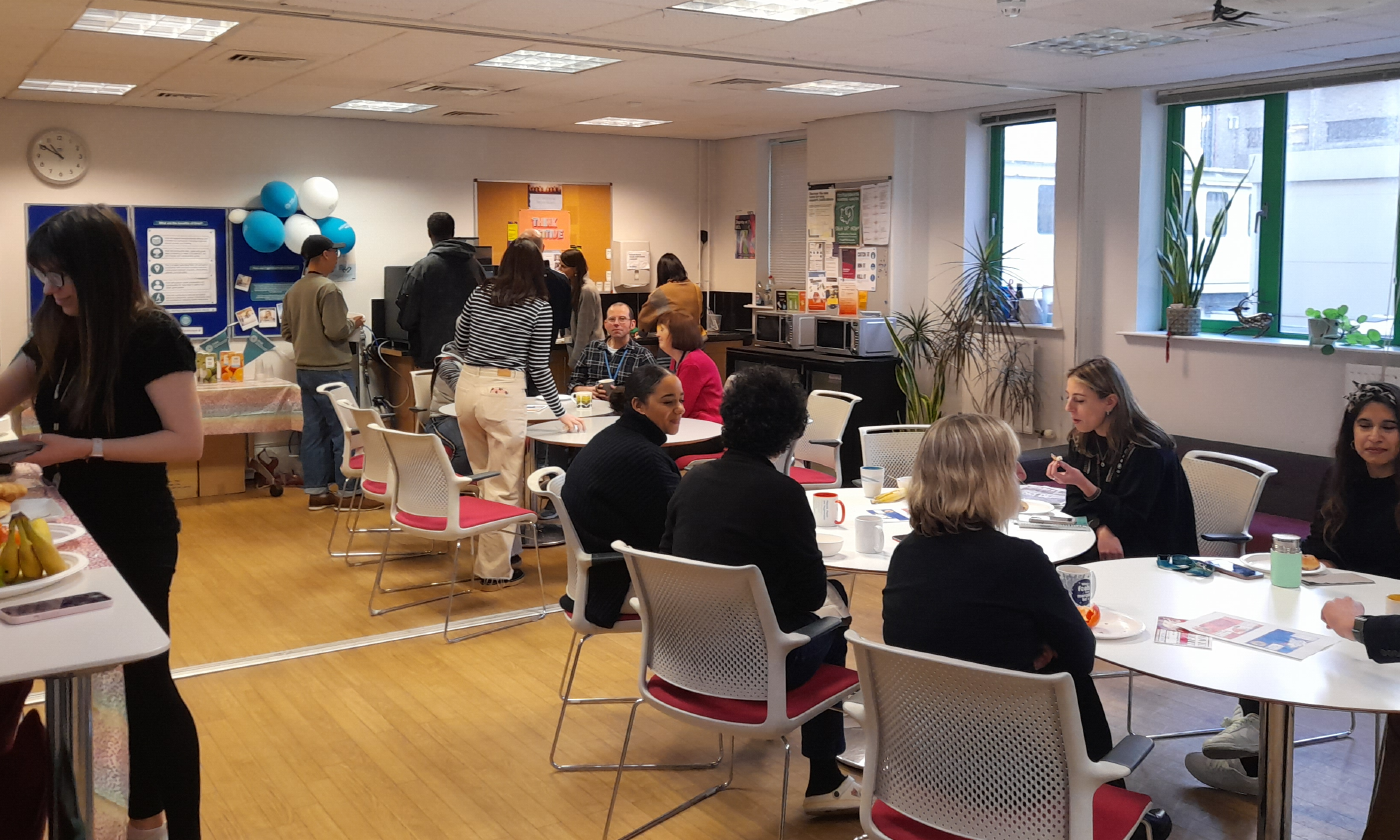
The student common room at the Institute of Ophthalmology is popular for meeting friends or studying.
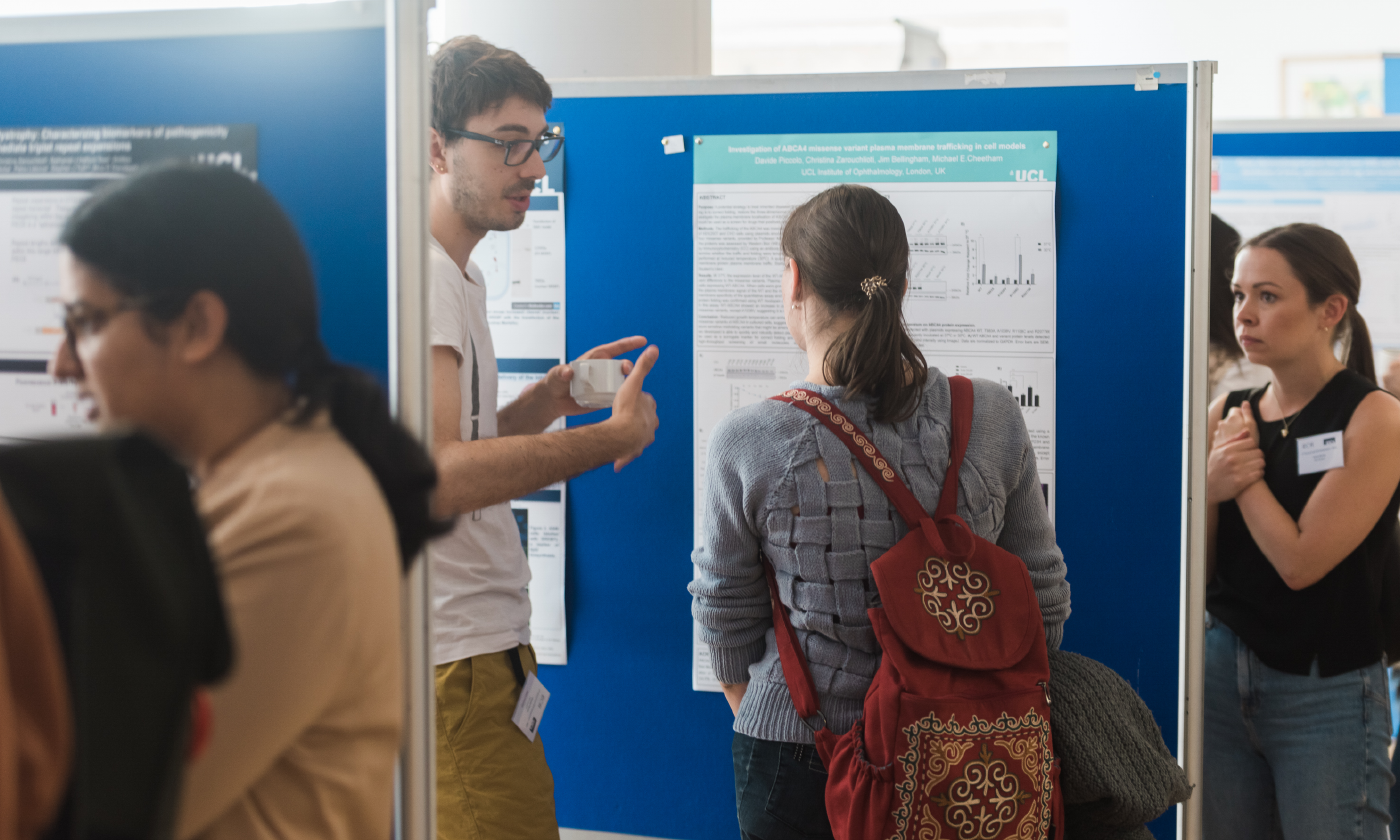
Join a community of researchers, academics and students passionate about advancing eye care and health.
Taster lectures and videos
More information for students
Programme directors
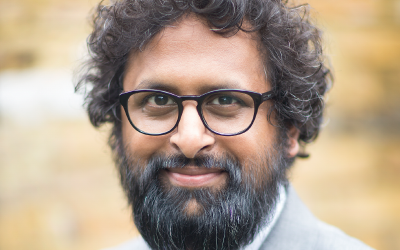
Dr Dipesh E Patel BMedSci, PGDip, PhD, SFHEA – Associate Professor/NIHR Advanced Fellow and Programme Director for Orthoptics MSc (pre-registration), UCL Institute of Ophthalmology/UCL GOS Institute of Child Health. Orthoptist Principal, Moorfields Eye Hospital and Honorary Researcher, Great Ormond Street Hospital
Dipesh is a clinical academic orthoptist whose previous research has informed the development of clinical guidelines for the assessment of visual fields in children with complex ophthalmic disorders, in both clinical and research settings. His current research investigates key issues about amblyopia (lazy eye) management, from generating evidence to support decisions about referral for treatment, to improving understanding of management choices. Dipesh has previously held HEE NCEL and CLAHRC personal Fellowships.
Dipesh drives education innovation at UCL IOO, leading a project team to develop, evaluate and deliver simulated learning for Orthoptic students. He is also author of the British and Irish Orthoptic Society (BIOS) Curriculum Framework for Pre-registration Orthoptic Education and Training, and member of the BIOS Orthoptic Apprenticeships Trailblazer group.
Find out more about Dipesh's career as an orthoptist and information on why it is a dynamic and rewarding career in our Spotlight feature interview here.
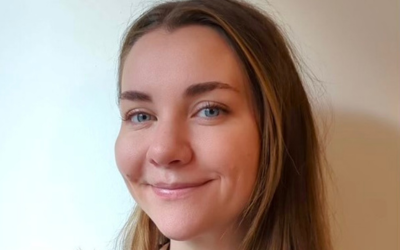
Ms Alice Donnachie BMedSci, FHEA – Advanced Orthoptist; Moorfields Eye Hospital and Deputy Programme Director for Orthoptics MSc (pre-registration); UCL Institute of Ophthalmology.
Alice is an experienced orthoptist and clinical educator. In 2020 she worked with the British and Irish Orthoptic Society on the Clinical Placement Expansion Project, an innovative project to expand clinical placement experience for orthoptic students, which won the AHP Creative Provision of Placements Award at the Chief Allied Health Professions Officer (CAHPO) Awards in 2022. In 2021, Alice joined the UCL Orthoptics MSc course as a Module Lead. In 2023 she became Deputy Director for the programme. She is a member of the Education and Professional Development Committee for British and Irish Orthoptic Society.
 Close
Close


